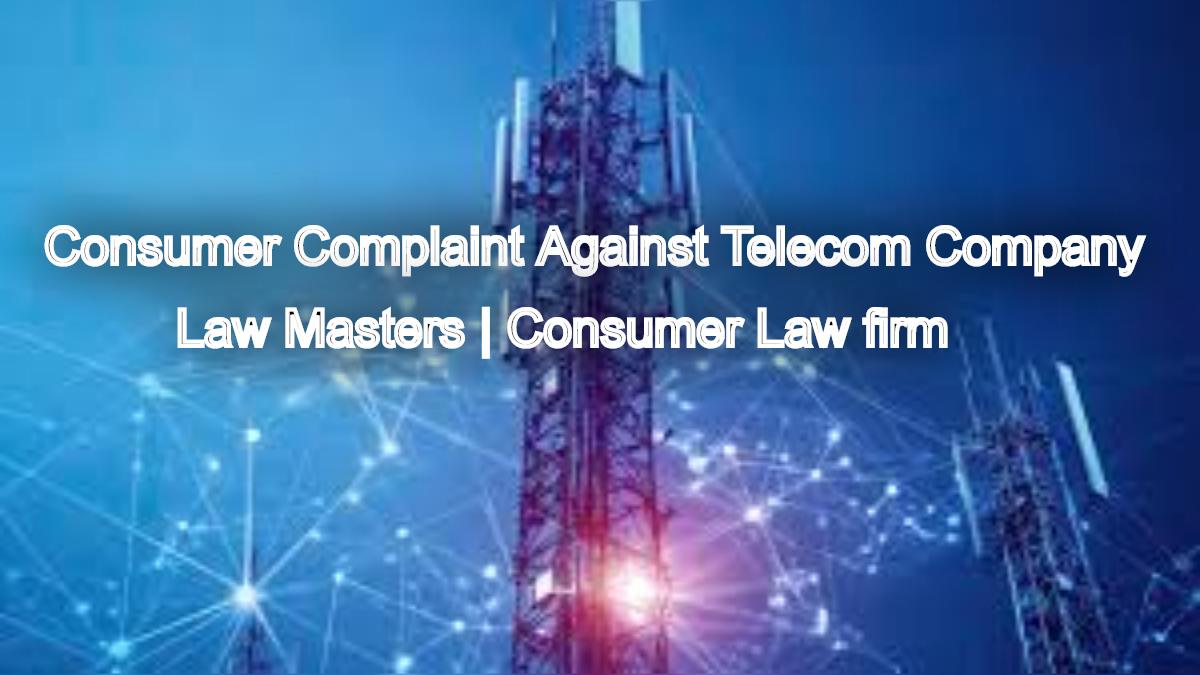Don’t Settle: As consumers, we have rights. Retailers must uphold these rights. Sometimes, they fail to do so. You might face defective products. You could encounter unfair trade practices. Perhaps you experienced misleading advertising. Don’t simply accept these injustices. Law Masters is here to fight for you. We provide expert legal support for consumer complaints against retailers. Our dedicated attorneys champion consumer rights. We ensure your voice is heard.
Law Masters: Your Advocates Against Retailer Wrongs
Understanding Your Consumer Rights
Consumer law protects your interests when you purchase goods or services. Several laws safeguard you. The Consumer Protection Act is paramount. This act outlines various rights. These include the right to safety. You also have the right to be informed. The right to choose is another key aspect. Furthermore, you possess the right to be heard. The right to seek redressal is also crucial. Finally, consumer education is your right.
First and foremost, the right to safety means that products should not harm you. Retailers are responsible for selling safe goods. If a product causes injury due to a defect, you have grounds for a complaint. You can seek compensation for damages.
Furthermore, the right to be informed ensures that retailers provide accurate information about products. This includes details about quality. It also covers quantity, potency, purity, standard, and price. Misleading information violates this right. You can take legal action against such practices.
Moreover, the right to choose means you have the freedom to select from various products at competitive prices. Retailers should not restrict your choices unfairly. Anti-competitive practices are illegal. You can report such behavior.
In addition to this, the right to be heard ensures that your complaints are addressed. Retailers should have mechanisms for handling grievances. If your concerns are ignored, you can escalate the matter legally.
Furthermore, the right to seek redressal allows you to claim compensation for losses due to unfair trade practices. This could include refunds. It might also involve replacement of defective goods. Legal avenues are available to ensure you receive fair compensation.
Finally, the right to consumer education empowers you to make informed decisions. You have the right to learn about your rights and responsibilities. This knowledge helps you protect yourself from unfair practices.
Common Consumer Complaints Against Retailers
Consumers face various issues with retailers. Defective products are a frequent complaint. This includes electronics that malfunction. It also covers appliances that break down prematurely. Furthermore, it involves food items that are unsafe.
Moreover, unfair trade practices are another common problem. This can include false advertising. It might also involve deceptive pricing. Furthermore, it could involve hoarding essential goods. These practices harm consumers. Legal action can be taken against retailers engaging in them.
In addition to this, poor customer service often leads to complaints. Retailers should address consumer grievances promptly and efficiently. Failure to do so can be a violation of consumer rights.
Furthermore, issues with billing and payments are also common. Overcharging or incorrect billing can lead to disputes. Consumers have the right to accurate billing. They can challenge incorrect charges legally.
Moreover, problems with warranties and guarantees are frequent. Retailers must honor their promises regarding product performance. Failure to do so can be grounds for a complaint.
Finally, online shopping issues are increasingly prevalent. This includes non-delivery of goods. It also involves the sale of counterfeit products. Furthermore, it covers issues with returns and refunds. Consumer laws protect you in the digital marketplace as well.
How Law Masters Can Help You
Law Masters provides comprehensive legal support for your consumer complaints against retailers. Our experienced attorneys understand consumer law thoroughly. We are committed to protecting your rights.
Initially, we offer a free consultation to understand your case. We listen to your concerns carefully. Subsequently, we assess the merits of your complaint. We advise you on the best legal course of action.
Moreover, we help you gather necessary evidence. This might include purchase receipts. It could also involve photographs or videos of defective products. Furthermore, it might include communication records with the retailer. Strong evidence strengthens your case.
In addition to this, we draft and file your consumer complaint. We ensure all legal requirements are met. We present your case effectively to the appropriate authorities.
Furthermore, we represent you in negotiations with the retailer. We aim for a fair settlement. If a settlement cannot be reached, we are prepared to litigate on your behalf.
Moreover, we guide you through the legal process. We explain each step clearly. We keep you informed of the progress of your case.
Finally, we fight tirelessly to ensure you receive the justice you deserve. We aim to recover compensation for your losses. This might include refunds, replacements, or damages.
Don’t Settle for Less Than You Deserve
Retailers have a responsibility to treat consumers fairly. When they fail to do so, you have the right to seek legal recourse. Don’t settle for defective products or unfair practices. Law Masters empowers you to fight back.
First, document everything related to your complaint. Keep records of purchases. Save all communication with the retailer. Take photographs or videos if relevant.
Furthermore, contact Law Masters for a free consultation. Our experienced attorneys will assess your case. We will explain your legal options clearly.
Moreover, understand that you are not alone. Many consumers face similar issues. By taking legal action, you not only seek justice for yourself but also help protect other consumers.
In addition to this, be aware of the time limits for filing a consumer complaint. Acting promptly is crucial. Don’t delay seeking legal advice.
Finally, remember that Law Masters is your dedicated advocate. We are committed to fighting for your rights. We will guide you through every step of the process.
Frequently Asked Questions
A: Legal action is warranted for issues like defective products causing harm, unfair trade practices (false advertising, deceptive pricing), significant breaches of warranty, and consistent failure to address legitimate consumer grievances.
A: Key evidence includes purchase receipts, warranty documents, photographs or videos of defective products, communication records with the retailer (emails, letters), and any documentation of losses or damages incurred.
A: Law Masters offers a free consultation, helps gather evidence, drafts and files your consumer complaint, represents you in negotiations, and litigates on your behalf if necessary to ensure you receive fair compensation for your losses.
A: As a consumer in India, you have rights including the right to safety, the right to be informed, the right to choose, the right to be heard, the right to seek redressal, and the right to consumer education, as outlined in the Consumer Protection Act.
A: Yes, under the Consumer Protection Act, there is a limitation period for filing a complaint. It’s generally within two years from the date of the cause of action. Therefore, it’s crucial to act promptly and seek legal advice without delay.
Conclusion
Retailers must adhere to consumer protection laws. When they violate these laws, consumers have the right to seek legal redressal. Don’t settle for defective products, unfair practices, or poor service. Law Masters | Consumer Law firm | Best Consumer Lawyers 24/7 is here to provide the expert legal support you need. Our experienced attorneys are ready to fight for your rights and ensure you receive the justice you deserve. Contact us today for a free consultation. Let us help you stand up against retailer wrongs and achieve a fair resolution. Your rights matter, and we are here to protect them.
Read More
- Fight for Justice: Attorneys for Consumer Complaint Legal Support Against Hospital
- Legal Advocacy: Attorneys for Consumer Complaint Against Telecom Company
- Stand Up: Attorneys For Consumer Complaint Against Toll Plaza in India
- Ensure Fair Play: Attorneys For Consumer Complaint Against Stock Broker in India
- Get Results: Attorneys For Consumer Complaint Against Real Estate Broker in India
- National Consumer Helpline (NCH)











